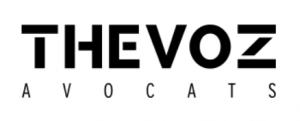U.S. Supreme Court refuses to allow parties to obtain evidence for uses in Foreign Arbitration Procedures by invoking § 1782(a)
In a unanimous decision, the U.S. Supreme Court ruled that § 1782(a) does not apply to private foreign arbitrations.”
— Olivier Thevoz, Esq.
AUSTIN, TX, USA, June 14, 2022 /EINPresswire.com/ -- Olivier Thevoz, Esq., Founder and Managing Partner of THEVOZ attorneys, a well-known and highly-respected attorney specializing in international business and tax litigation, admitted to practice in the United States (Texas) and Switzerland, has released the following statement regarding yesterday's U.S. Supreme Court ruling in
which the high court took a unanimous stance against private companies in international disputes having the power to compel testimony:“Yesterday, the U.S. Supreme Court refused to allow parties to obtain evidence for uses in Foreign Arbitration Procedures by invoking § 1782(a).
In a unanimous decision, the U.S. Supreme Court ruled that § 1782(a) does not apply to private foreign arbitrations. Justice Barrett emphasized that 'permitting federal courts to assist foreign and international governmental bodies promotes respect for foreign governments and encourages reciprocal assistance.' Whereas, providing such assistance to private bodies does not serve that purpose.
However, this may not have completely closed the door to obtaining evidence in the United States for private foreign arbitration procedures. Indeed, the United States, together with more than 60 other countries including most European countries, signed the Hague Convention on the Taking of Evidence Abroad in Civil or Commercial Matter (also known as the 'Hague Evidence Convention'). This Convention allows judicial authorities — but not the parties — in one contracting country to obtain evidence located in another contracting country for use in judicial proceedings. The question is whether the notion of “judicial authority” in the Hague Evidence Convention encompasses a foreign private arbitration body.
For instance, a private arbitration body with a seat in Switzerland can request assistance from the Swiss state courts for taking evidence. Upon receiving such a request, Swiss state courts can send a Letter of Request pursuant to the Hague Evidence Convention to the Office of International Judicial Assistance of the U.S. Department of Justice ('OIJA'). When the Letter of Request reaches OIJA, OIJA can obtain the evidence for the requesting foreign 'judicial authority.' Theoretically, Hague Convention and 1782(a) provide two separate procedures. In reality, OIJA normally screens the requests and forwards the request to the appropriate federal courts for compelled discovery under §1782. In this case, will the Supreme Court opinion bar the Swiss state courts from obtaining evidence in the United States because such evidence will be used in a private arbitration proceeding? The Supreme Court opinion did not address the notion of 'judicial authority' in the Hague Convention. In fact, the Supreme Court said that “[g]overnmental and intergovernmental bodies may take many forms, and we do not attempt to prescribe how they should be structured.”
In conclusion, the Supreme Court opinion bars parties of a foreign arbitration proceeding from obtaining evidence in the United States through 1782(a) applications. In the past, the Hague Evidence Convention has not been often cited for obtaining evidence in the United States. However, a party of a private arbitration proceeding may now try to use this Convention to obtain evidence in the United States after the Supreme Court's opinion. The outcome, however, remains unclear.”
THEVOZ attorneys is available to clients for consultation related to yesterday's U.S. Supreme Court ruling. THEVOZ attorneys can be found at www.thevoz.ch.
About THEVOZ attorneys
THEVOZ attorneys, based in the United States and Switzerland, is an international law firm specializing in tax representation and tax litigation for multinational corporations and private companies. The firm also specializes in international business law and complex business litigation matters that cross sovereign national borders. THEVOZ attorneys' partners have combined more than 40 years of experience resolving complex international tax and business-related matters for their clients.



No comments:
Post a Comment